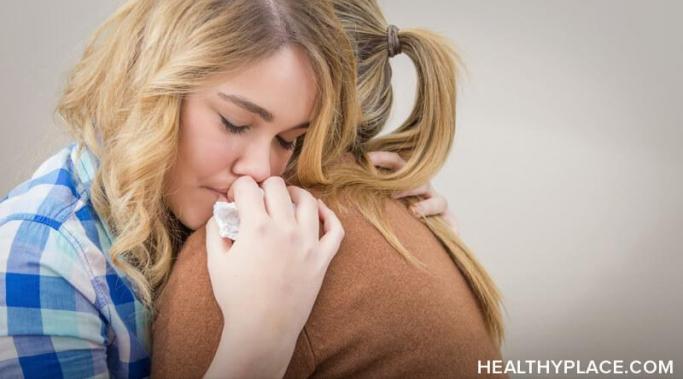Blogs
Happiness after verbal abuse is possible, although every version of verbal abuse is different (including variations of personality, perception and how severe the verbal abuse was). While I strongly believe in the power to rebuild yourself after a verbally abusive relationship and most of my blog articles focus on this aspect, there's one important step that should not be overlooked, and that's the phase of letting yourself be hurt. Happiness after verbal abuse is possible if you endure this step of the process.
It's that time of year where we all try and remember the importance of gratitude, so I want to take a moment to reflect on why I'm so grateful for the recovery progress I've made in the last year. Recovery is never a linear process, which means I've had my share of backslides, but I've also taken several important steps forward, and that should be celebrated.
Vulnerability is not something we normally link with self-esteem. We are much more inclined to picture an impenetrable sort of confidence, a version of ourselves where nothing can breach our walls of strength and self-adoration. Yet vulnerability is not only an incredibly powerful tool for those already on the road towards building self-esteem–it is also a very good place to start.
Recently, my excellent therapist suggested that I try to start needing reassurance less often from other people. My schizoaffective disorder makes me doubt myself and second-guess myself a lot, so I often ask other people if something I’m doing or did or that happened is okay. But doing that only reinforces the idea that I’m not capable. So I’m trying to be more independent. Here’s how needing reassurance less often is going.
As this decade is reaching its end, I am reminded of how long behavioral addictions have haunted me and exactly how far I've come. Around 2010, I first began exploring my sexuality as a teenager and I quickly learned how helpful sex could be as a coping skill for a struggling and defiant teenager like myself. Over time though, I wasn't just relying on sex to cope, my tendency to rely on certain behaviors or activities to survive slowly spread to nearly every area of my life including things like food, social media, shopping, and probably even others that I'm not fully aware of. Behavioral addictions are especially tricky to conquer because they commonly involve the most regular and routine aspects of our lives and they often go completely unnoticed.
What is interoceptive exposure and how does it help rid you of phobias?
When one is severely depressed, work is usually the last thing on one's mind. In fact, many people, including me, have to battle active suicidal ideation and struggle to get out of bed each day. Unfortunately, work doesn't stop just because you are not in the right state of mind to do it. If you are one of the lucky few who can take time off from work, go ahead and do it right away. But if your workplace or job does not allow for you to take a break, here is how you can stay productive even when you are severely depressed.
I’ve been a pretty massive introvert with anxiety for my entire life. Compared to the population at large, my threshold for social interaction has always been exceedingly low; even after a simple night out with friends, I generally need at least a day of alone time to recover. Of course, I’ve struggled with severe anxiety for my entire life as well, and because of that, I thank God that I’m an introvert. I sincerely believe the fact that I’m an introvert with anxiety makes it easier to keep my anxiety under control.
I fake normalcy because having a mental illness is isolating and makes me feel different. Facing the outside world can be difficult. Here are five coping methods (positive and negative) I noticed I do when I leave the house that help me fake normalcy.
Deciding to tell someone about your posttraumatic stress disorder (PTSD) diagnosis can be a stressful decision. It's tough to open up about your mental health, especially after going through a traumatic experience. Will people understand? Will they judge you?









